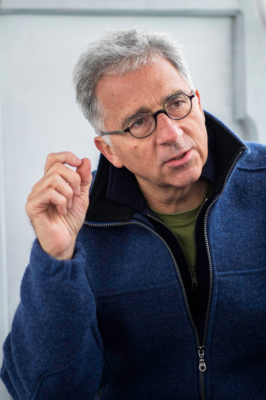
10th October 2014 A cure for type 1 diabetes may be imminent Researchers at Harvard University have turned human embryonic stem cells into cells that produce insulin, a potentially major advance for sufferers of diabetes.
Harvard researchers have made a giant leap forward in the quest to find a truly effective treatment for type 1 diabetes, a condition that affects an estimated 22 million people worldwide. With human embryonic stem cells as a starting point, the scientists produced for the first time – in the kind of massive quantities needed for cell transplantation and pharmaceutical uses – human insulin-producing beta cells equivalent in most every way to normally functioning beta cells. “We are now just one pre-clinical step away from the finish line,” says Prof. Douglas Melton, who led the work and has been researching the disease for nearly 25 years. “You never know for sure that something like this is going to work until you’ve tested it numerous ways. We’ve given these cells three separate challenges with glucose in mice and they’ve responded appropriately; that was really exciting. It was gratifying to know that we could do something that we always thought was possible, but many people felt it wouldn’t work. If we had shown this was not possible, then I would have had to give up on this whole approach. Now I’m really energised.” Elaine Fuchs, a Professor at Rockefeller University, who is not involved in the research, hailed it as “one of the most important advances to date in the stem cell field, and I join the many people throughout the world in applauding my colleague for this remarkable achievement.” “For decades, researchers have tried to generate human pancreatic beta cells that could be cultured and passaged long term under conditions where they produce insulin.” Fuchs continued. “Melton and his colleagues have now overcome this hurdle and opened the door for drug discovery and transplantation therapy in diabetes.” Jose Oberholzer, Associate Professor at the University of Illinois at Chicago, said the work “will leave a dent in the history of diabetes. Doug Melton has put in a life-time of hard work in finding a way of generating human islet cells in vitro. He made it. This is a phenomenal accomplishment.”
Type 1 diabetes is an autoimmune metabolic condition in which the body kills off all the pancreatic beta cells that produce the insulin needed for glucose regulation in the body. Thus, the final pre-clinical step in the development of a treatment involves protecting from immune system attack the approximately 150 million cells that would have to be transplanted into each patient being treated. Melton is collaborating with colleagues on the development of an implantation device to protect the cells. The device currently being tested has thus far protected beta cells implanted in mice from immune attack for many months. “They are still producing insulin,” Melton said. Cell transplantation as a treatment for diabetes is still essentially experimental, uses cells from cadavers, requires the use of powerful immunosuppressive drugs, and has been available to only a very small number of patients. Daniel G. Anderson from MIT, who is working with Melton on the implantation device, said the new work by Melton’s lab is “an incredibly important advance for diabetes. There is no question that ability to generate glucose-responsive, human beta cells through controlled differentiation of stem cells will accelerate the development of new therapeutics. In particular, this advance opens the doors to an essentially limitless supply of tissue for diabetic patients awaiting cell therapy.” “There have been previous reports of other labs deriving beta cell types from stem cells,” said Melton. “No other group has produced mature beta cells as suitable for use in patients. The biggest hurdle has been to get to glucose sensing, insulin-secreting beta cells, and that’s what our group has done.” Human transplantation trials using the cells are expected to start in the next few years. Melton's work was published yesterday in the journal Cell.
Comments »
|








